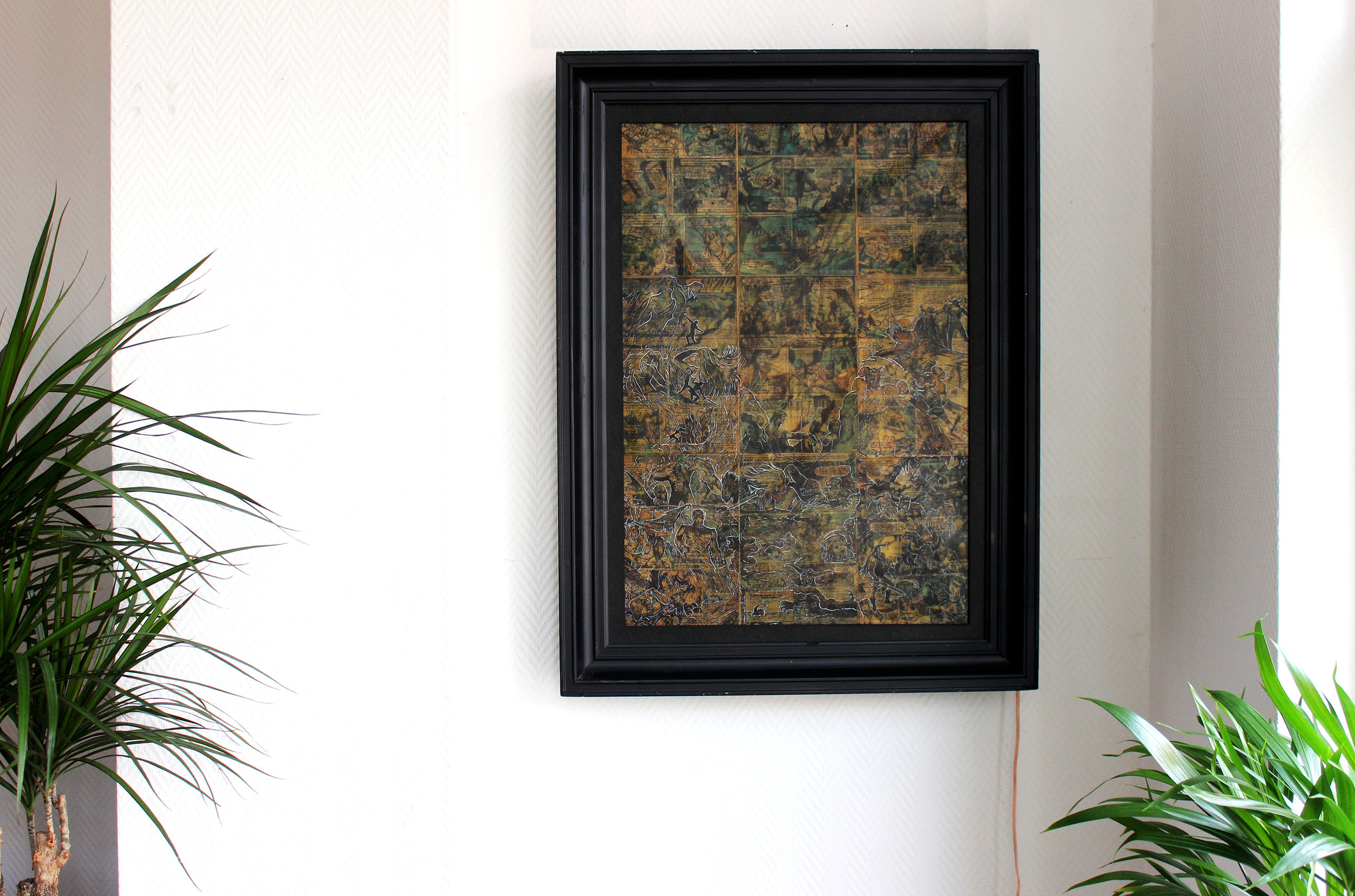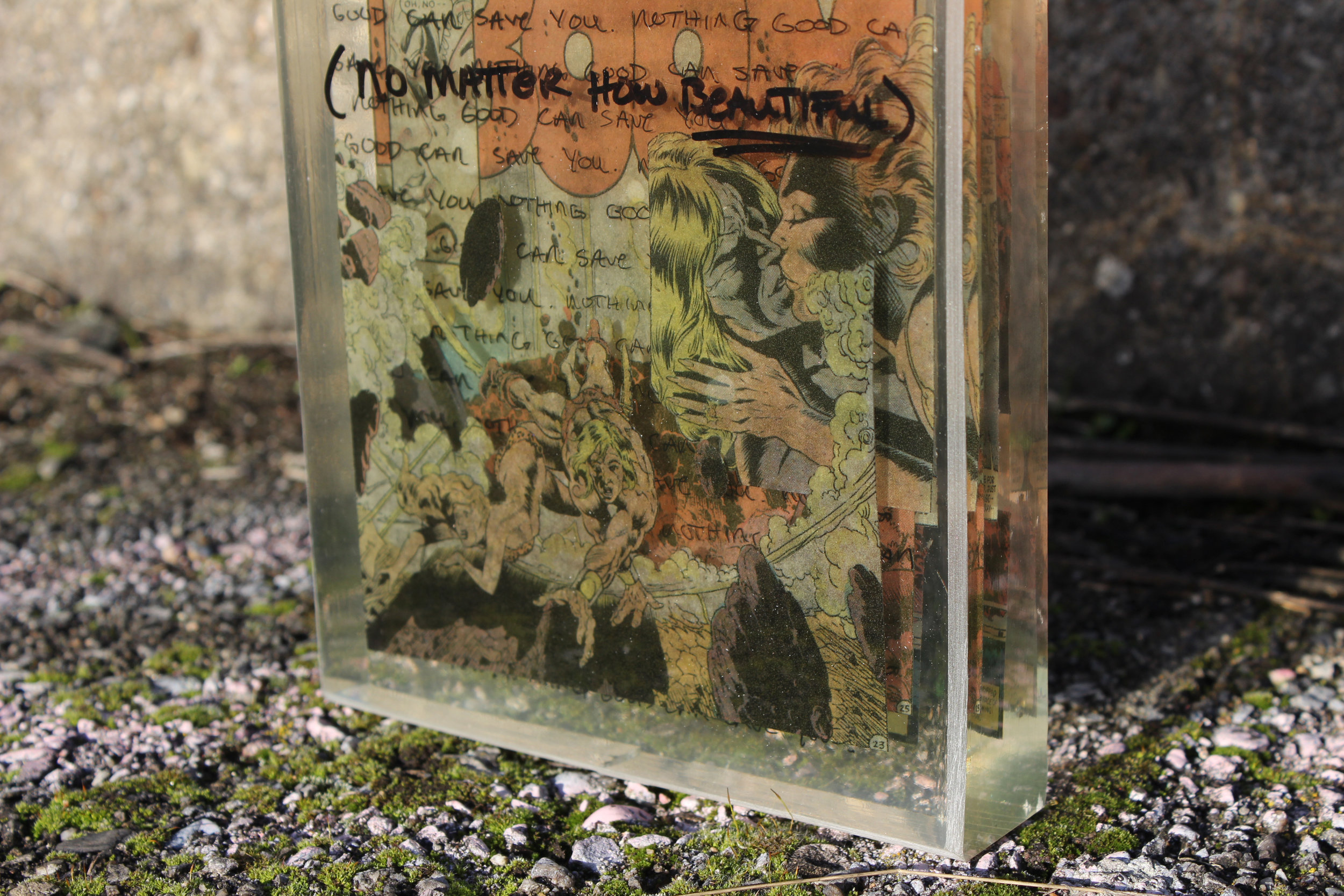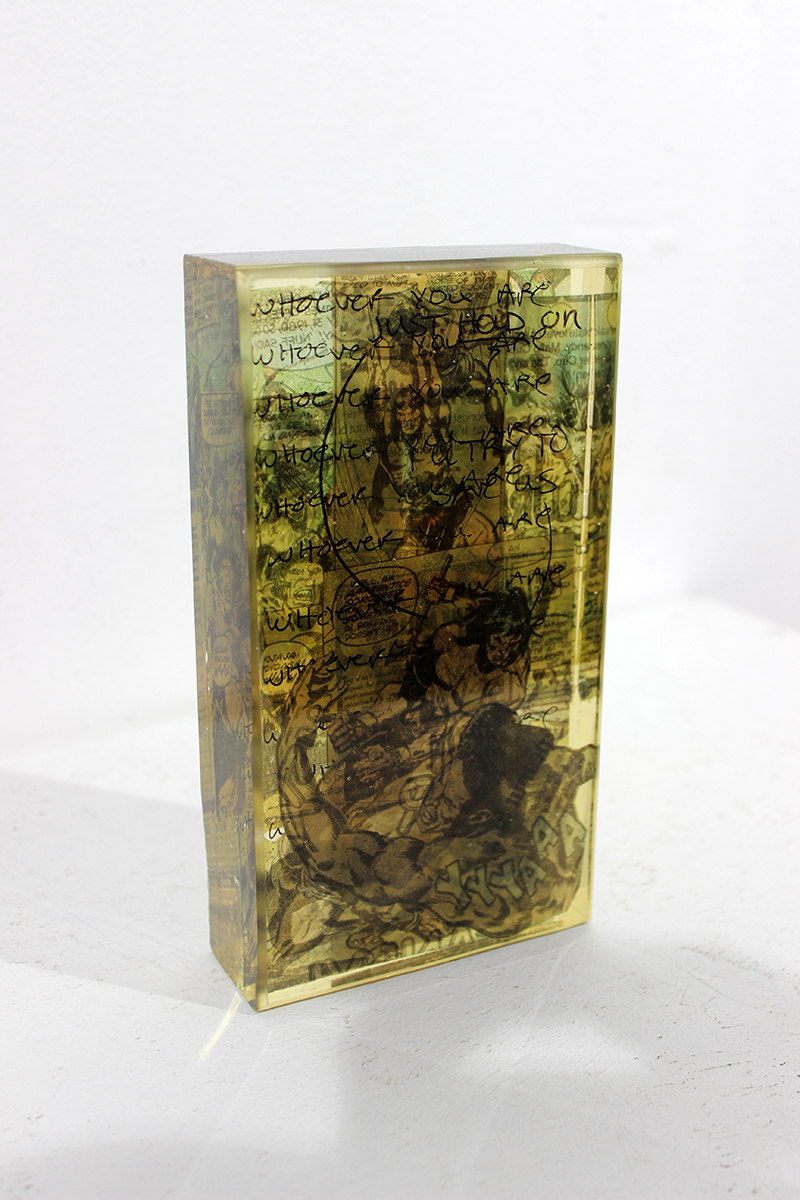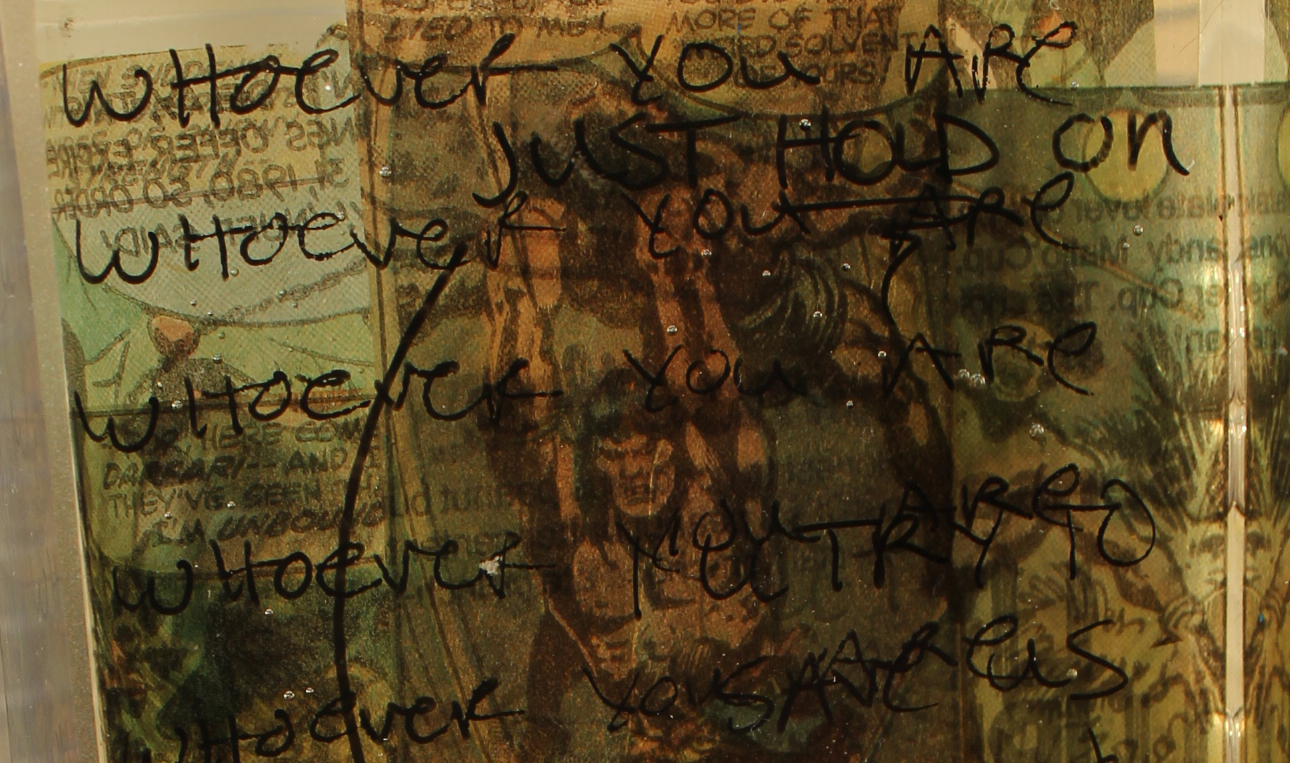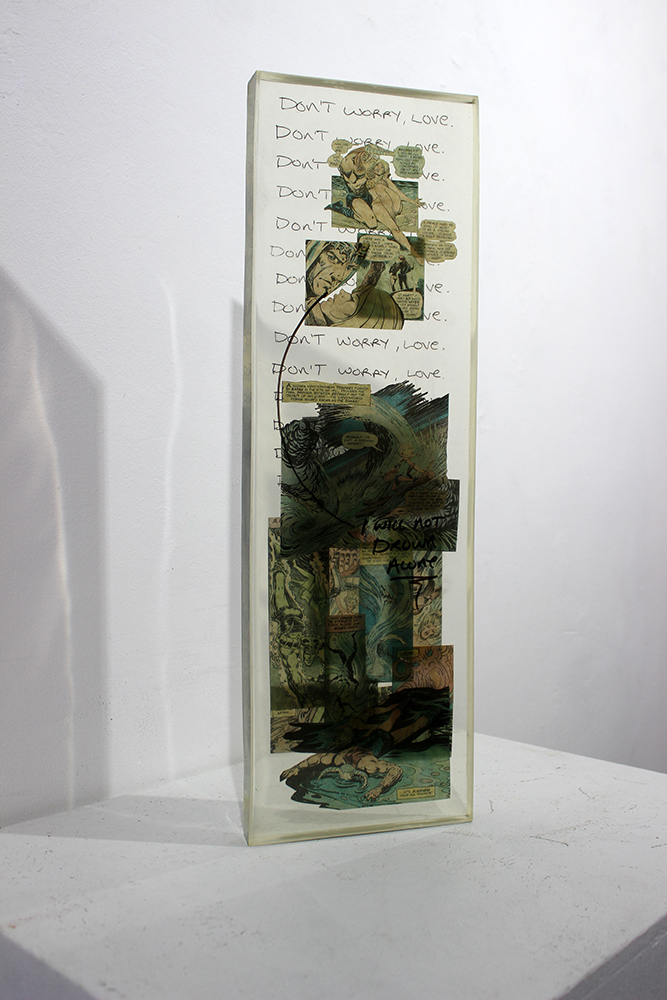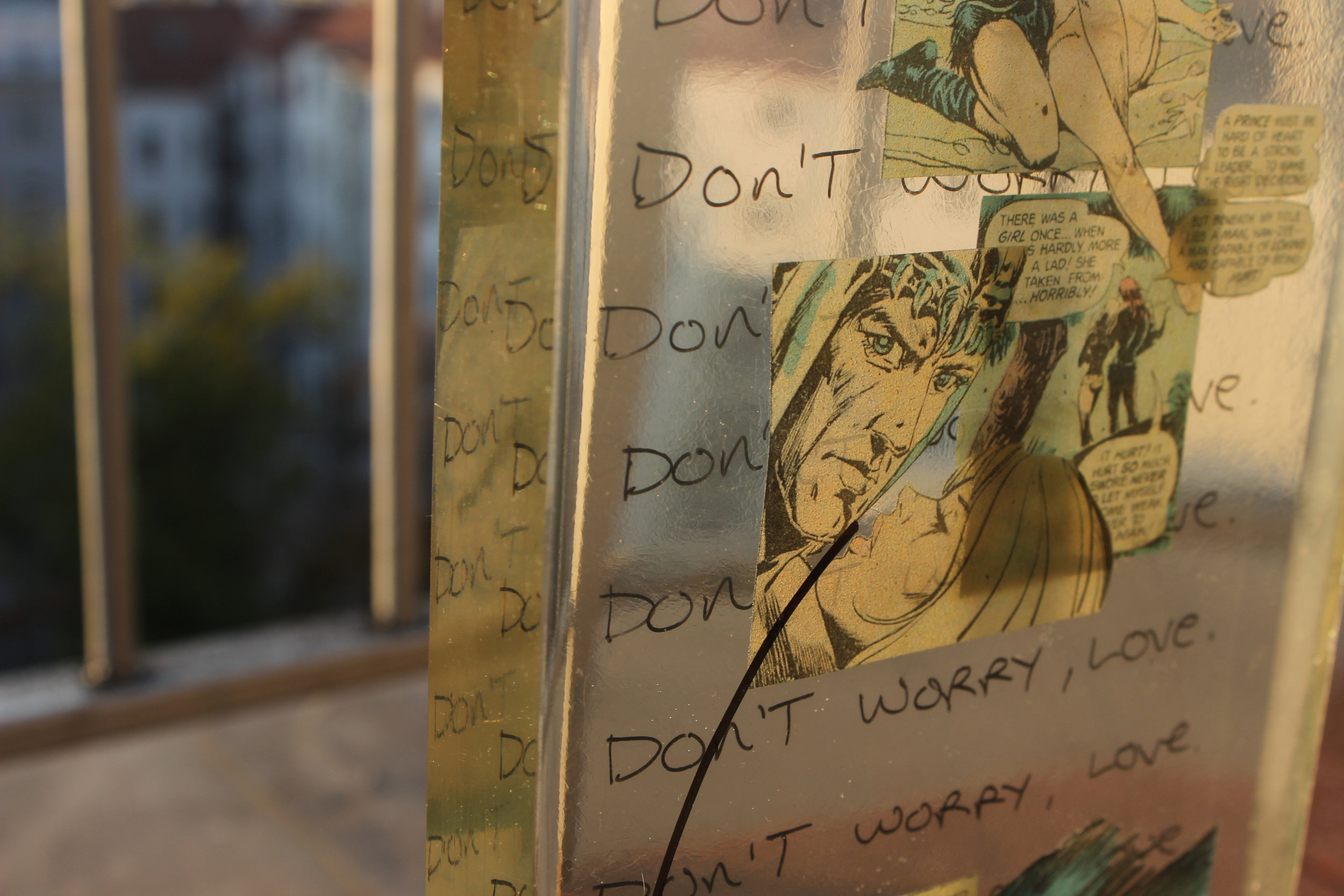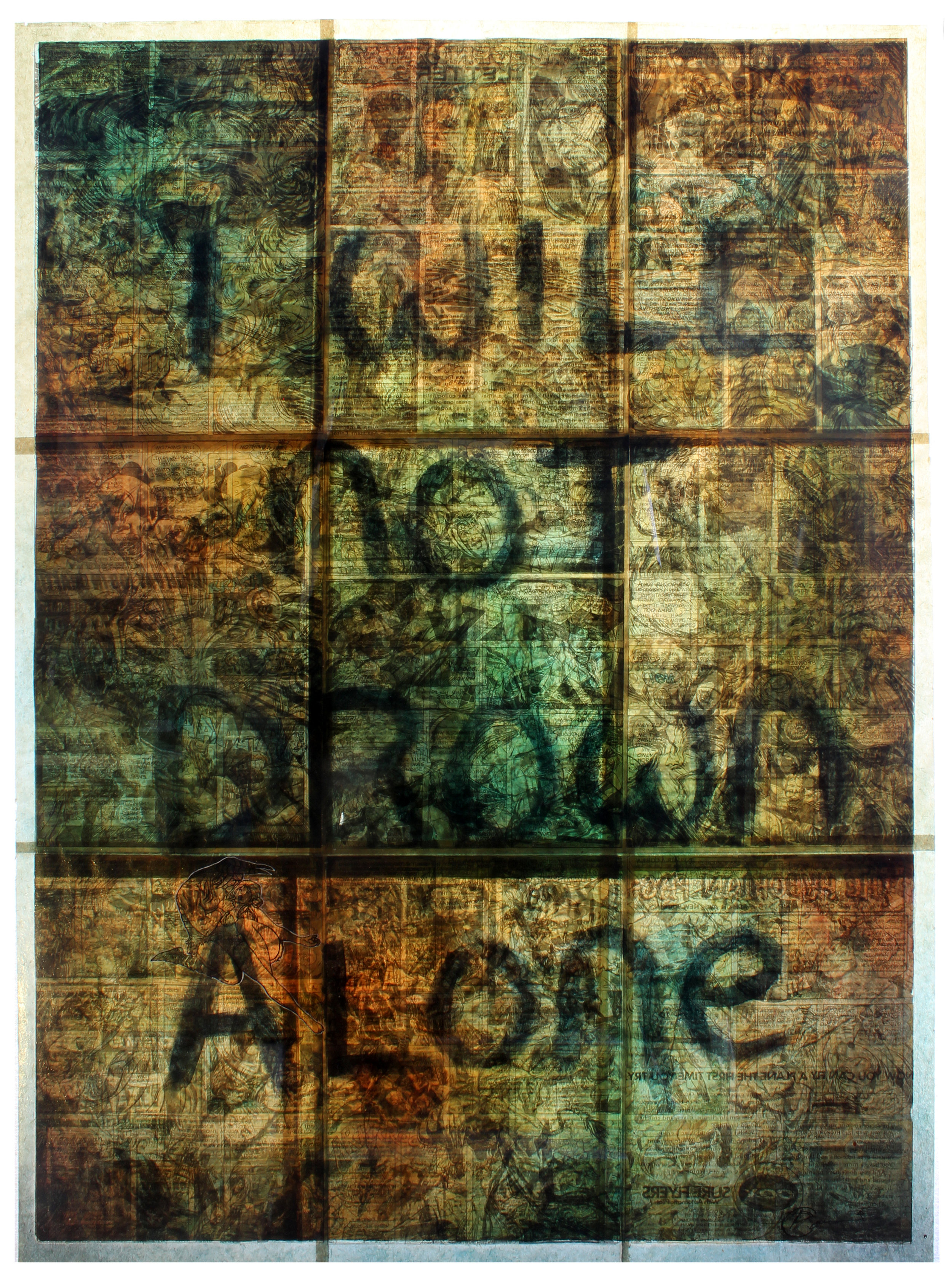About No Heroism in Love
Each piece in this series--and the collection as a whole--is an exploration of the interplay between Love and Heroism, and the existential implications of our close association of the two.
As an artistic trope, Love is cheap. It is readily available and easy to access. More importantly, it seems to tap into something universal in the human experience. I am specifically interested in Love as a heroic feat. Love is often described in terms of mutual heroism. "He saved me" or "She saved me" or "They saved me." From what? What is the looming threat that we are all being rescued from at the very moment we rescue someone else? Is it simple loneliness? Or something more ominous?
In this work I want to turn away from that celebration of heroic love and towards what I believe is a more instinctual sense of existential danger. A sinking suspicion that even the most indomitable spirit may prove helpless in the face of eternity. A sense of hopelessness at the inevitable failure of our will. An intimate understanding of mortality that cannot be avoided. Even amidst the fleeting exhilaration we feel when someone grabs us by the waist and twirls us in the air, we can't seem to tear our eyes away from the void.
As the title clearly suggests, love is not a heroic feat. For me, this series is not about epic love, but about the existential tragedy that undergirds it.
Heroism is usually defined by the undertaking of some super-ethical action. Heroes knowingly place themselves at risk to save, protect, uphold or defend the people or values of a society. It could be said that they embody some moral truth. In our paradigm for heroic figures we find not only heavily-muscled, super-humans (i.e., Superman, Spiderman), but also stalwart civil servants bound by duty and unconcerned for their own safety (i.e., firefighters, policemen) and selfless Samaritans out to help those who cannot help themselves (i.e., organ donors). In all of these cases heroes take the values held closely by the societies they represent into the realm of action. Nowhere are these paradigms more clearly expressed than the narrative tradition of highly-moralized, quest-driven tales of heroism: the epic.
Love is difficult to pin to ethics. Love can hardly be defined as selfless, and may even find itself at odds with a society's moral values. There is a selfishness inherent in love, even if it is mutually held--an anti-heroic impulse (think of the "us-against-the-world" or "together-in-the-face-of-eternity" mentality). Yet, it is hard to deny the sense of salvation that accompanies requited love feels much like being rescued from danger. A release from self through companionship, perhaps. Or an renewed sense of hope and fulfillment. Is it hope that makes us call love heroic? And why is it that even in the most heroic of tales, love is more often described as tragic than redeeming?
In No Heroism in Love I appropriated the images of epic heroes and heroines. These images were taken from comic books with intentionally generic, highly stereotyped figures....characters that you likely won’t know well, but will immediately recognize for what they are. Bare-chested warriors stand in valiant defense of scantily-clad damsels. Heroes/heroines find themselves facing insurmountable odds, the source of which often blurs the line between the natural and supernatural. These overwrought and gendered stories are the roots of the Western canon, and characters feel like they were taken straight from the tongues of ancient orators.
Like the poems and tales they recall, this work depicts epic heroes and heroines interrupted mid-quest...caught in the throws of some inescapable evil, brows sweating with the efforts of some monumental feat. With a shared energy, they thrash about, straining to save themselves and their beloved. They scream loudly, cry softly and clutch each other in the face of danger. But what is it that makes their love heroic? Is it purity of their motives? Efficacy of their actions? A striving for victory? And if they are victorious, will it even matter?...

